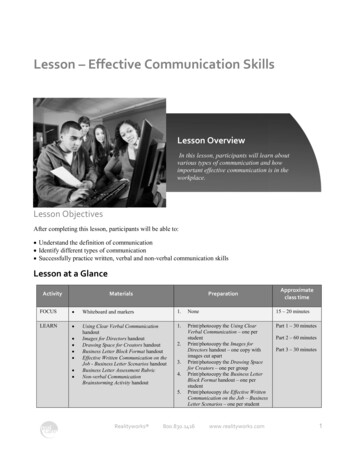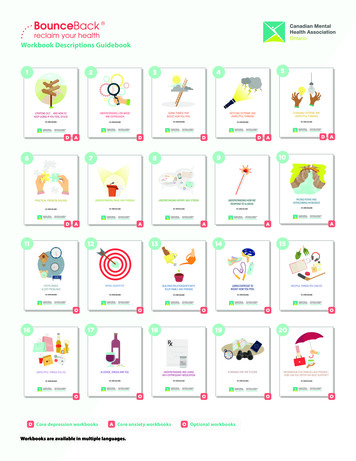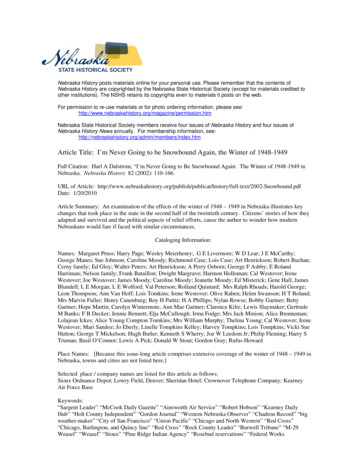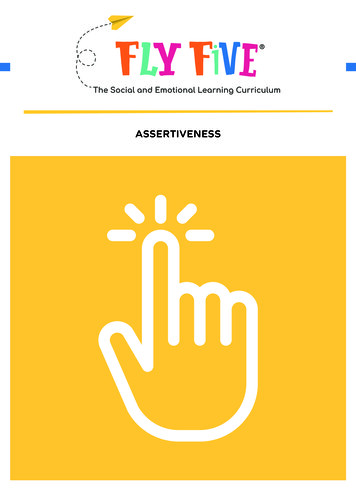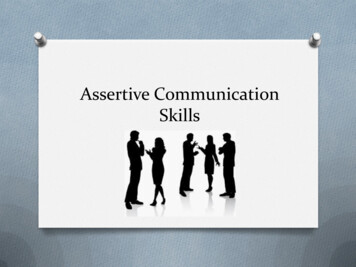
Transcription
Assertive CommunicationSkills
Different Communication Styles
Passive CommunicationO I don’t have rightsO Does not respect selfO Exhibits low self-esteemO Blames othersO Denies or doesn’t express feelingsO Keeps it all inO I lose-you winO Controlled by others
Aggressive CommunicationO You don’t have rightsO Doesn’t respect othersO Diminishes self-esteem in othersO Blames othersO Expresses own negative feelingsO Lets it all hang outO I win-you loseO Controls others
Assertive CommunicationO We both have rightsO Takes responsibilityO Expresses feelings in a constructive wayO Win-WinO OpenO Respects self and others
Effective AssertiveCommunication SkillsO “You” vs. “I” StatementsO Always use “I” statements. “You” statementscan be perceived as blamingO Example:O You don’t keep me informed.O I find it hard to keep up on the project when Idon’t have all of the relevant information.
Statements vs. QuestionsO “You” questions can be perceived as passiveaggressive. Convert those questions to “I”statements.O ExampleO Why do you always arrive late?O I expect you to be on time.
Non-Verbal Body CuesO Communication is 30% verbal and 70% non-verbal.O Be conscious of your body languageO Facial expressionO GesturesO Eye contactO Posture, stance and distanceO Eye-level relationship
Words to AvoidLittleShouldKind ofMakeSort ofNeverPerhapsAlwaysYou areCan’tI disagreeJustYes, but MustYou don’t understand
Communication RequiresListeningO Use active listening skillsO Listen for feelings as well asfactsO Listen for main ideas, disregardsidetracksO Listen without interruptingO Prepare feedback andparaphrase to ensure accuracyof message received
Three-Part Model for AssertiveCommunicationO Acknowledge the OtherO What I hear you sayingO What I see happening
Three-Part Model for AssertiveCommunication Cont.O Make “I” StatementsO I feel O I think O I know O I want O I need O I believe
Invite FeedbackO I’d like to hear how you feel.O Do you have any suggestions?O Are there any other options?O Tell me what you think.
SummaryO Assertive Communication Skills
Effective Assertive Communication Skills O “You” vs. “I” Statements O Always use “I” statements. “You” statements can be perceived as blaming O Example: O You don’t keep me in

